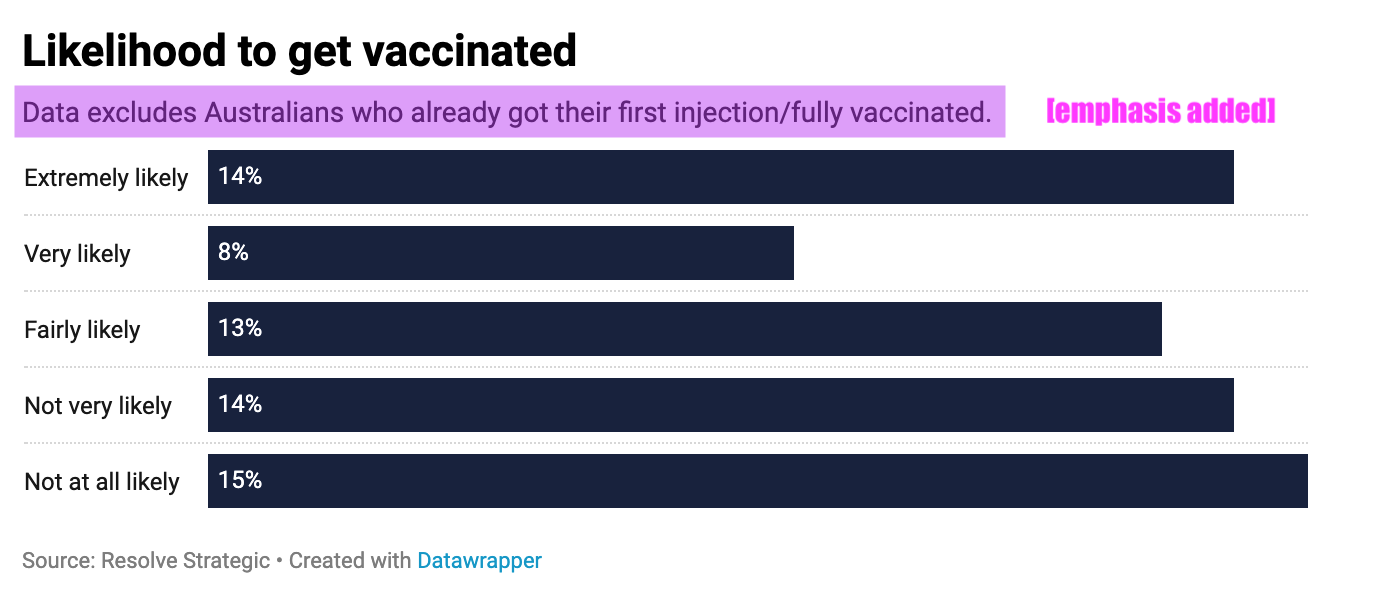How not to track vaccine attitudes
One way not to track vaccine attitudes, which I’ve already covered briefly, is to ask people if some piece of news, such as the rare blood clots with the AZ and J&J vaccine, has made them less likely to get vaccinated. People who always supported vaccination will say “no”; people who always didn’t will say “yes”. It’s like if you ask people whether Judith Collins’s speech in Christchurch yesterday made them less likely to vote National. National supporters will say “no”; Labour and Green supporters will say “yes”, and that’s regardless of whether she actually was in Christchurch or gave a speech.
The Sydney Morning Herald has another way not to do it (via David Hood)

The story says
The exclusive survey, an initiative of The Sydney Morning Herald and The Age with research company Resolve Strategic, found vaccine doubts were stronger than in Ipsos polls carried out in February and September, before an official ruling in April about blood clots linked to AstraZeneca doses for people under 50.
It’s possible that’s true, but we’re not given any reason to believe it. We aren’t told what the figures were in February and September, and the new figures exclude the 15% of Australians who are the most likely to get at least one shot of the vaccine, because they already have.
Also, the numbers in the bar chart add up to 64%, with no explanation of where the missing 36% are. Perhaps the 15% already vaccinated are part of that, and the statement about excluding them is untrue. Perhaps 36% said they didn’t know and that wasn’t thought to be worth mentioning. Perhaps they were eaten by drop bears. We can’t tell.
Attitudes to vaccination actually matter, and it’s plausibly a topic where knowing what other people believe will affect your beliefs, so it’s worth doing better than this.
Thomas Lumley (@tslumley) is Professor of Biostatistics at the University of Auckland. His research interests include semiparametric models, survey sampling, statistical computing, foundations of statistics, and whatever methodological problems his medical collaborators come up with. He also blogs at Biased and Inefficient See all posts by Thomas Lumley »
The group already ‘committed’ about vaccination is even larger- 35%, which could be the ‘missing group’.
‘findings on those unlikely to have the vaccine do not include 3 per cent who have been fully vaccinated, 19 per cent who have had their first jab and 13 per cent who are registered to get a vaccine’
3 years ago